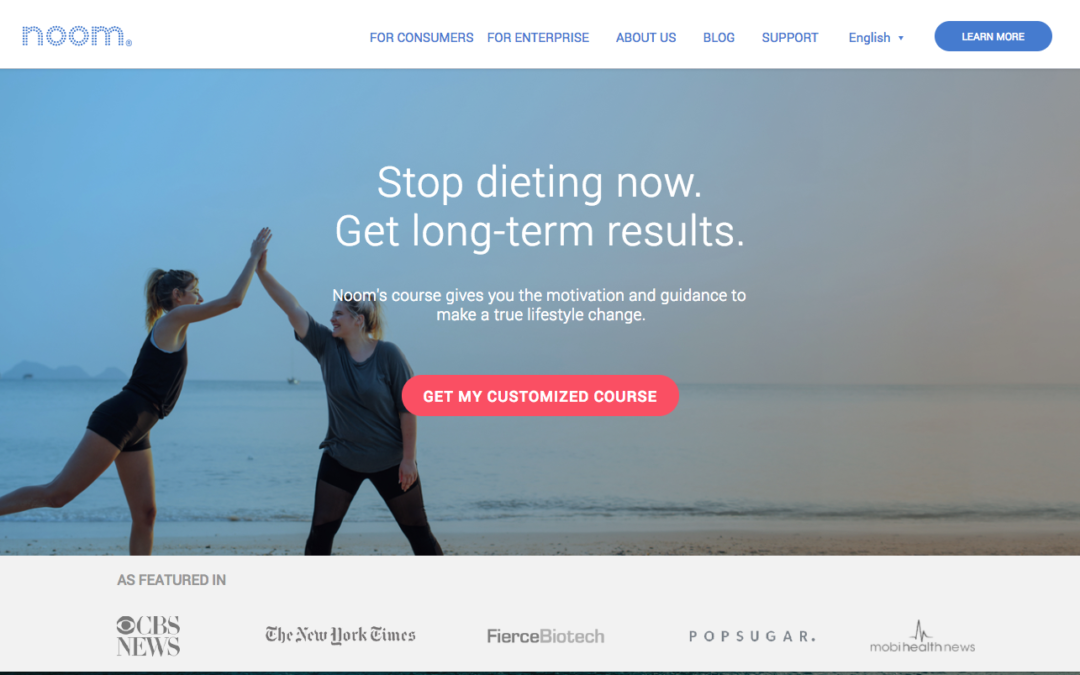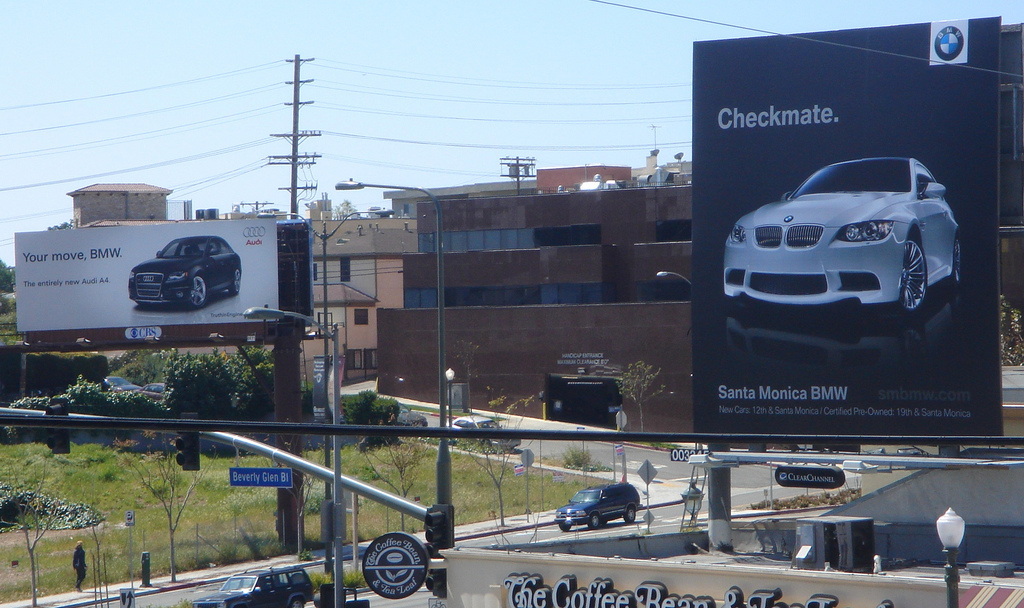🤔 What In The Ham Sandwich? Comparative Advertising or Insulting Copy?
This was my first thought when I saw Noom’s Facebook ad. I suppose this was an attempt at comparative advertising but it felt more like an insult after a long day. My oldest had a terrible tummy ache Monday morning. She seemed fine when I woke her up on Tuesday. However, there is a 24-hour wait policy before students are allowed to return to school after being sick. I took the youngest to class, stopped by the office to pick up a few things, grabbed lunch, worked from home, and took the oldest to the orthodontist. Then I picked up the youngest from school, stopped by the grocery store (hoping to put together a healthy meal that would also be easy on the gums), got home, cooked, and finally reclined on the sofa in the living room. After clearing a backlog of Facebook notifications I scrolled through the newsfeed and saw this . . .
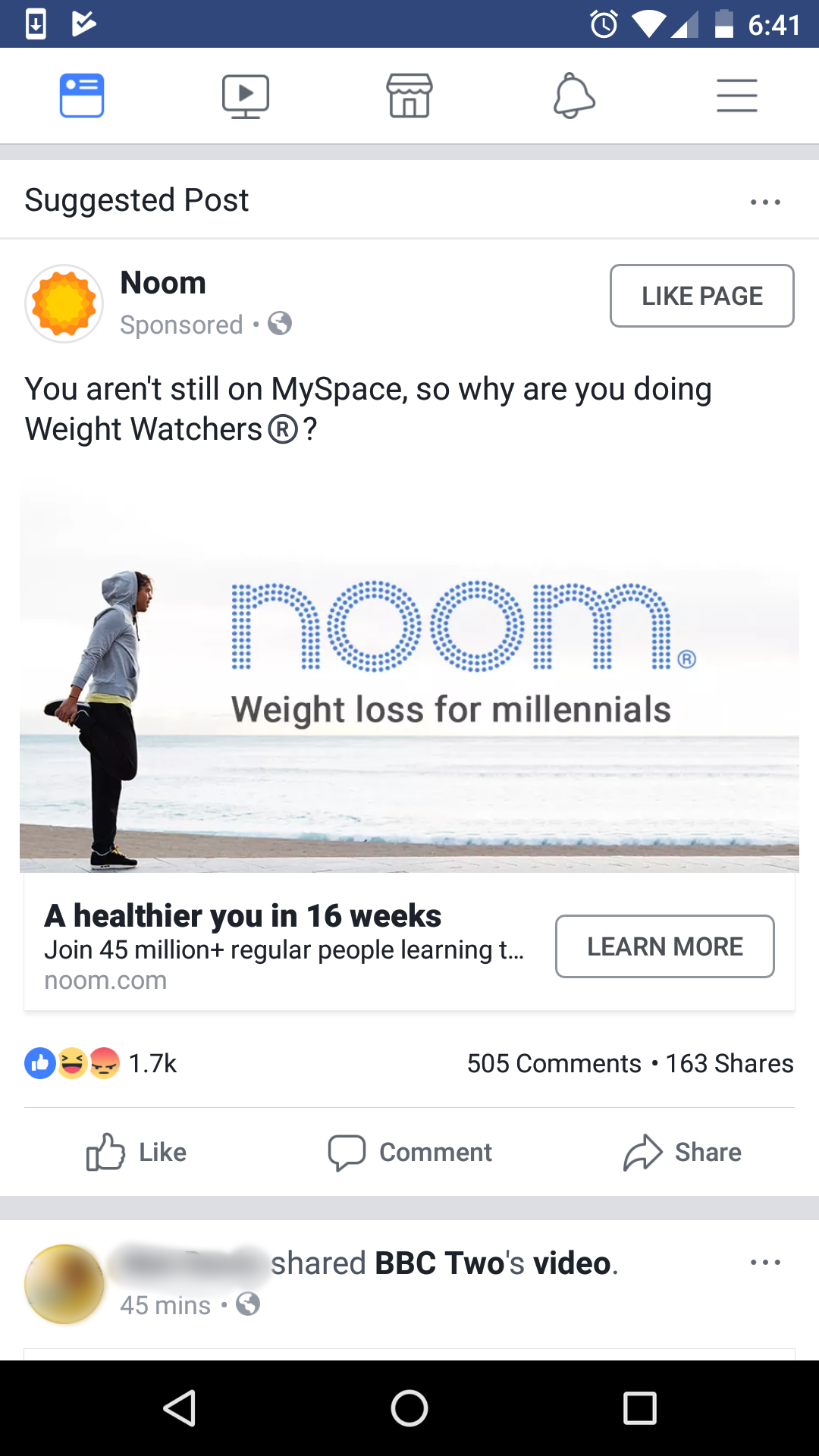
Offputting, But Why?
I sat down with my husband to sort through the reasons why my initial reaction was so negative.
1) Weight Watchers is NOT Myspace – I didn’t know what Noom was but I knew of Weight Watchers. Even though it has been around for a while the brand still has relevance, unlike Myspace. I never used their service, yet I wanted to defend WW against this comparison to a nearly dead social network by some company I never heard of. This wasn’t the best use of comparative advertising because I didn’t understand what Noom had to offer, nor did I have any desire to find out.
2) Pushback against “Dear Millennial” Ads – “Dear Millenial” advertisements just don’t appeal to me. They tend to feel condescending. Instead of offering me the opportunity for a real value exchange, it feels like, I should buy their product based on my demographics. It’s like someone saying, “Hey you, black woman in your early 30s, my research tells me that you should buy this!” Even if that’s true, I don’t know why I should. What does that product or service do for me? I don’t owe any company a purchase just because of my age bracket.
I had to find out if I was the only one who reacted negatively (I wasn’t).
The Comment Section
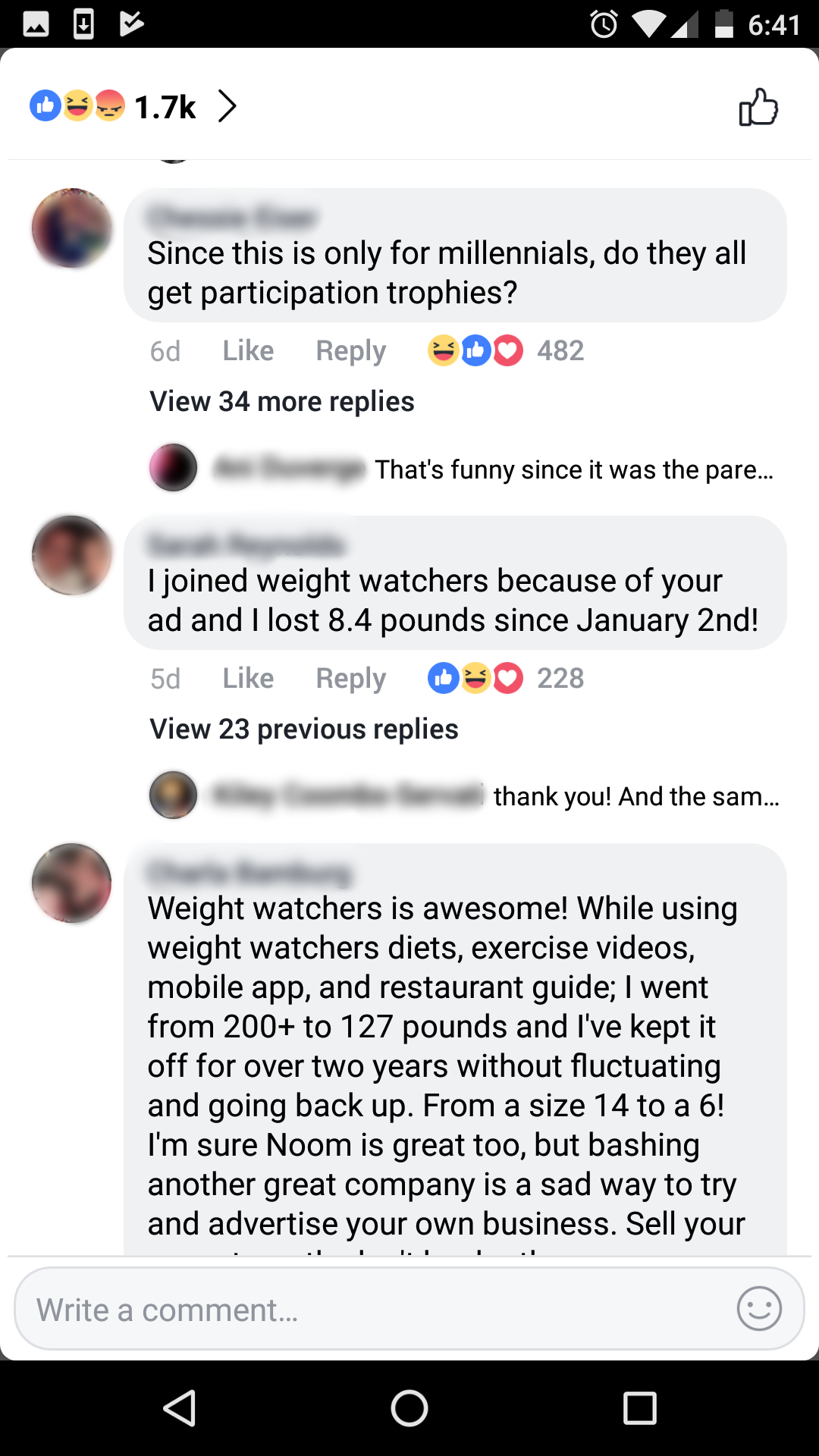
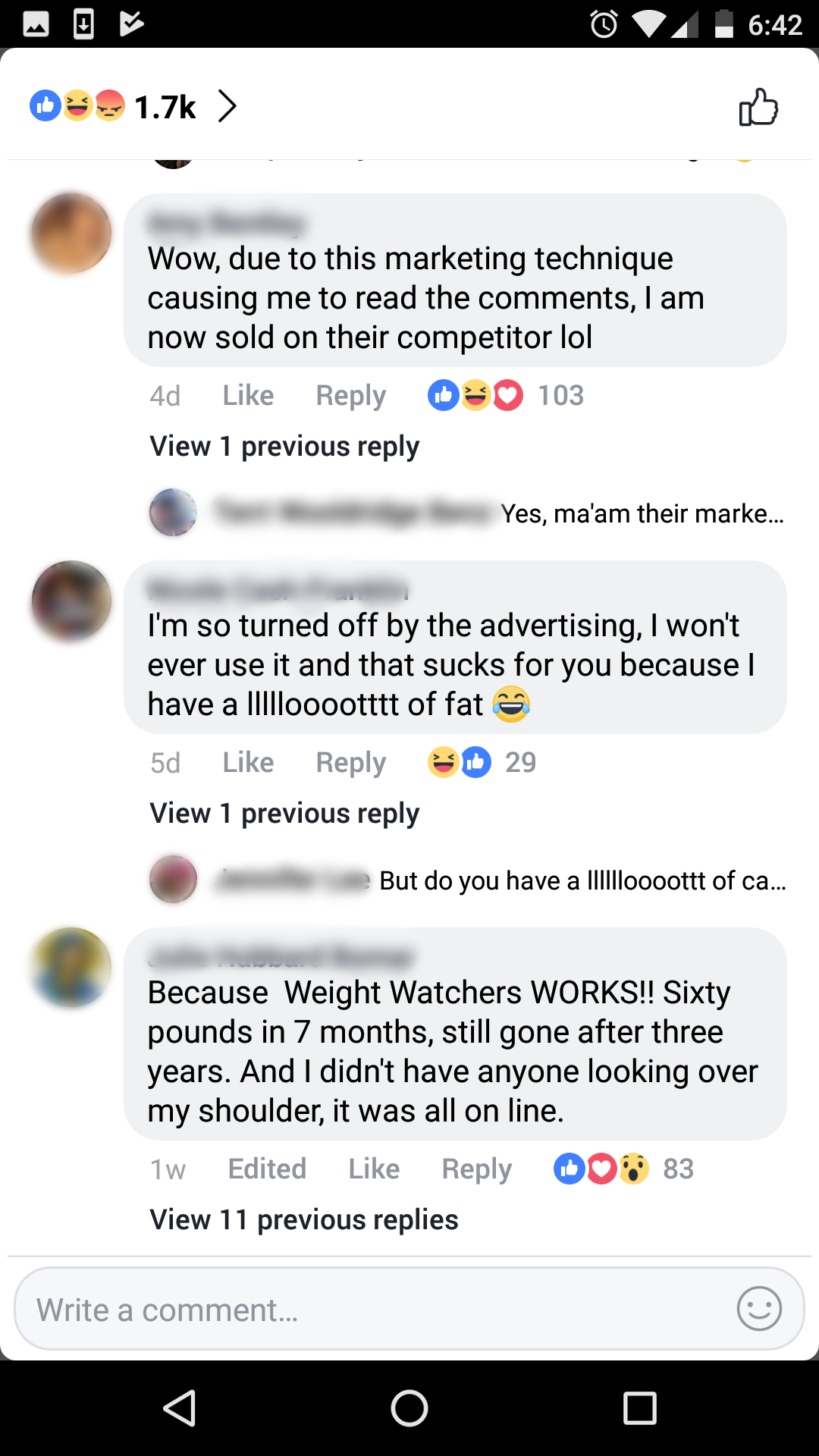
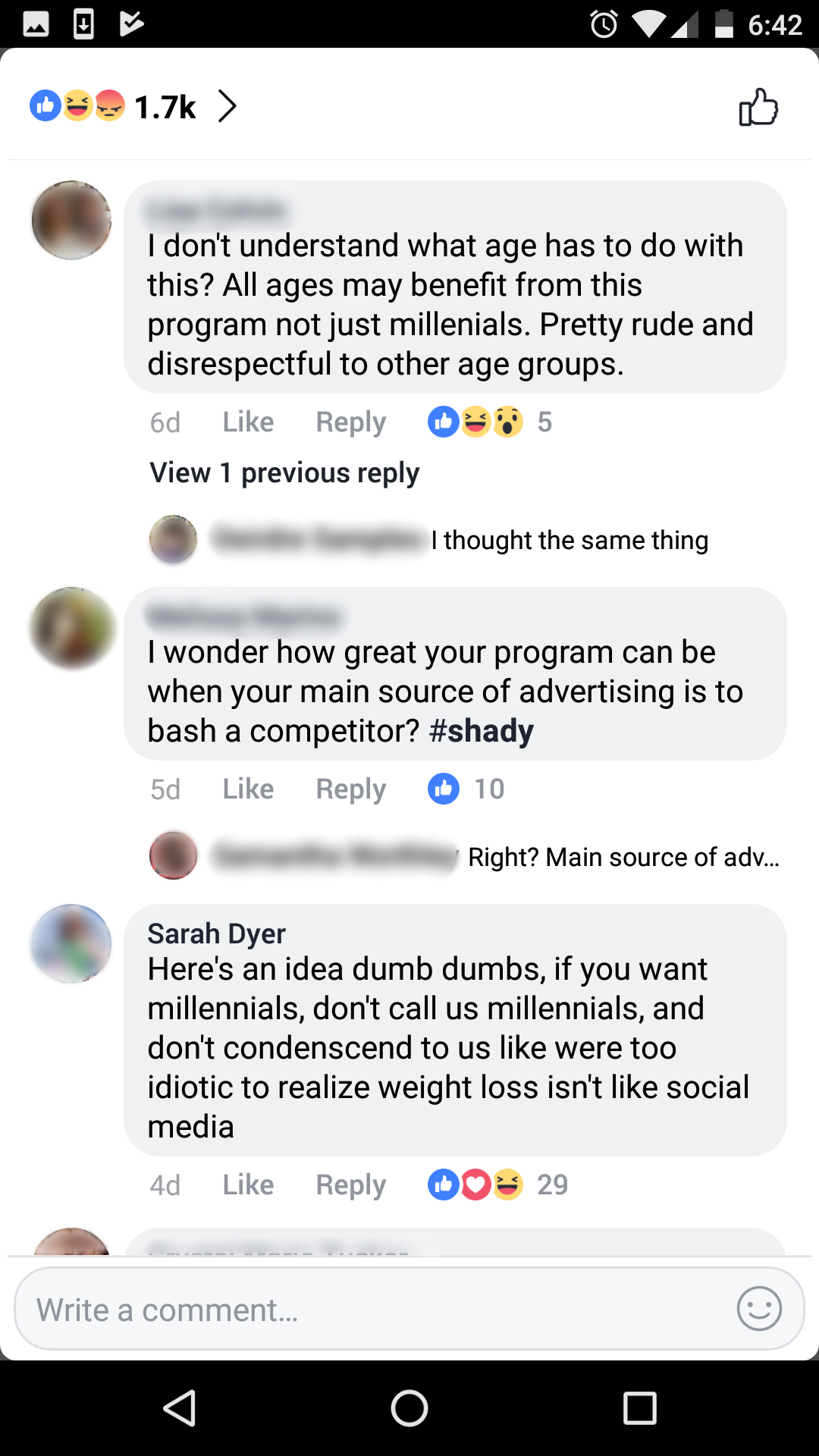
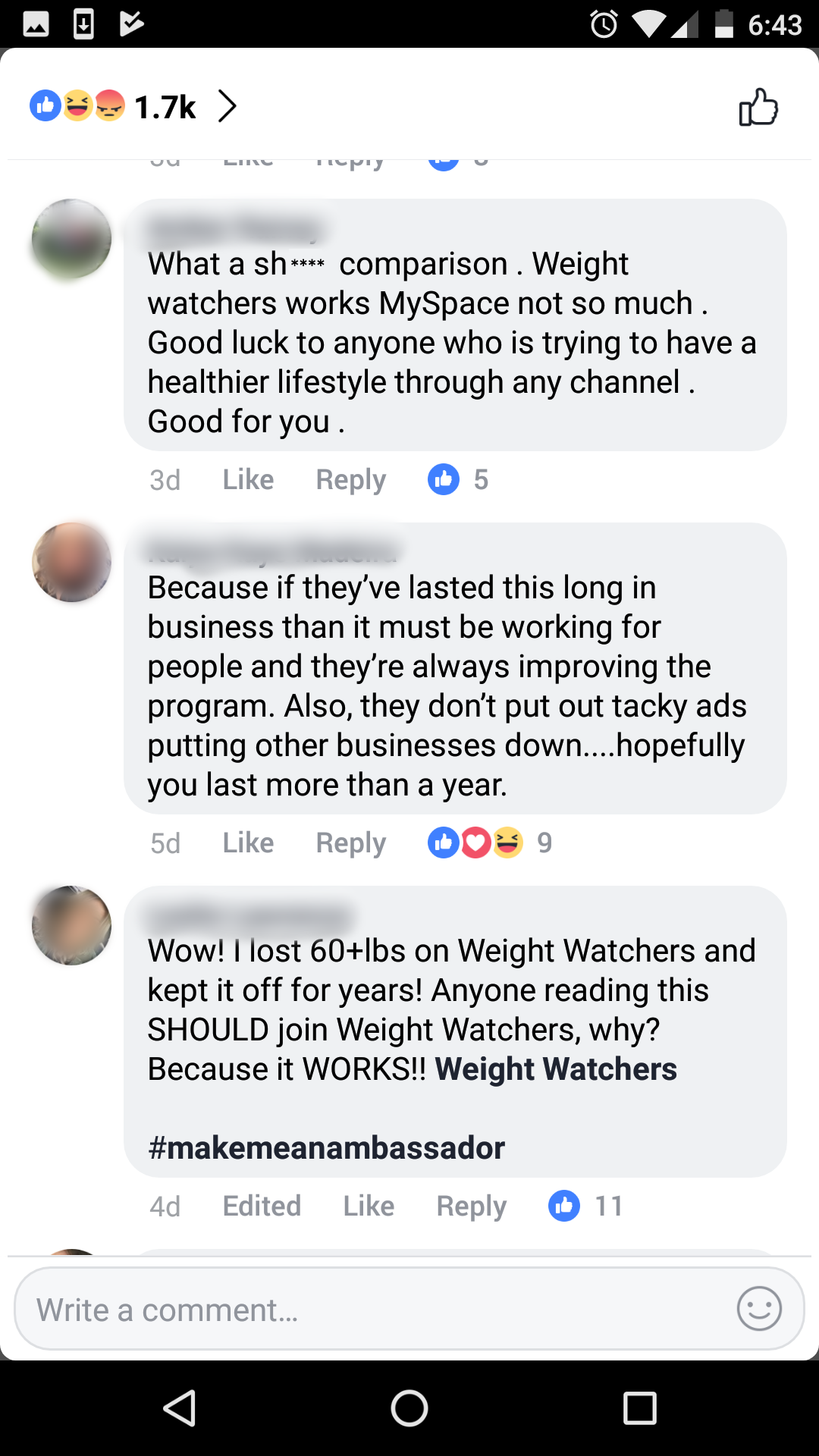
At the time there were 1,700+ reactions, over 700 of which were “angry.” Some FB users supposedly signed up with Weight Watchers after reading the comments on Noom’s advertisement. I assume this is not the intended goal.
A Better Way – Be the Better Choice
While most have concerns about the comparative ad approach, if you’re committed to calling out a competitor, there is a better way. Keep the focus on the product and brands. What makes your offering the better, cooler, wiser, easier, or more cost-effective choice? You’ll always have your competitor’s die-hard loyalists against you, but the goal for everyone else is still the same as a regular ad. Don’t insult or demean your audience, just show them why you are the better choice. 😎
The following are memorable examples comparative advertising:

